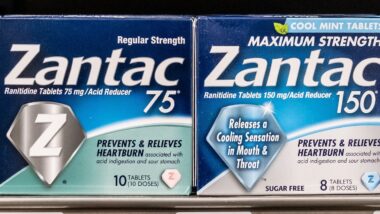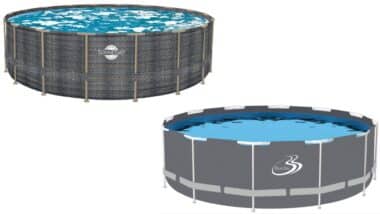
Health experts and the FDA have warned that the popular vaginal rejuvenation process may be riskier than patients realize. However, the procedures continue to grow in popularity and are marketed widely.
Allure reports that vaginal rejuvenation is a process in which lasers are used to poke tiny holes in the tissue of the vagina and vulva, stimulating the body’s natural wound-healing process to boost collagen production, blood flow, and lubrication. In some devices, radio-frequency is used in place of lasers, sending heat to deeper tissue to activate fibroblasts, which is supposed to have the same effect.
According to claims made by several vaginal rejuvenation device manufacturers, these products may stimulate the vagina to increase lubrication. Other claims include that the devices can be used to treat sexual dysfunction or pain with intercourse, aid with urinary incontinence, increase sensitivity, and improve or change the appearance of the vagina. Vaginal rejuvenation also supposedly increases sexual pleasure by tightening the tissue within the vagina.
All of these promised results have made the treatments attractive to women. However, the manufacturers of these devices can do little to back up these claims.
Concerns over Vaginal Rejuvenation Devices
These medical devices were first approved for use elsewhere on the body, to remove tattoos, smooth wrinkles, and reduce the appearance of acne scars. Later, the FDA approved the devices for use in the genital areas to remove HPV warts and precancerous lesions.
Allure goes on to say that these devices have recently taken off in popularity for use in vaginal rejuvenation, but they were not approved for these uses by the FDA.
Now, the FDA has sent warning letters to the makers of some laser and radio-frequency devices, expressing concern that these companies may be marketing the devices for unapproved uses. Allure says that the FDA has asked manufacturers to conduct clinical trials on the use of these devices for vaginal rejuvenation.
Additionally, the FDA warns that the procedure may come with side effects, which is particularly concerning, considering the dearth of research on the treatments.
According to a statement from then-FDA Commissioner Scott Gottlieb, “the deceptive marketing of a dangerous procedure with no proven benefit is…egregious… In reviewing adverse event reports and published literature, we have found numerous cases of vaginal burns, scarring, pain during sexual intercourse, and recurring or chronic pain.”
The North American Menopause Society and the American College of Obstetricians and Gynecologists (ACOG) have similar concerns over the devices. Allure says that the ACOG warns gynecologists to be “wary of adopting new or innovative approaches on the basis of promotions or marketing.”
Many patients may see the positive and exciting marketing claims around the vaginal rejuvenation treatments and mistake them for scientific proof. However, according to many experts, these claims could be misleading and may cause people to undergo treatments that could cause them injury.
Medical News Today notes that Commissioner Gottlieb worried that makers of vaginal rejuvenation treatments may “take advantage of unsuspecting consumers by marketing unapproved, deceptive products.”
In contrast, proponents of the vaginal rejuvenation process say that the beginnings of these clinical trials are promising. Reportedly, one study that was conducted did show that these treatments could boost collagen, but experts recognize that many of the issues the devices aim to treat are complicated ones.
 The American Society of Plastic Surgery says that vaginal rejuvenation provides a less invasive option than surgery for patients seeking a solution to a range of issues. However, though patients may think that a less invasive option is a less risky one, this may not be the case with vaginal rejuvenation treatments.
The American Society of Plastic Surgery says that vaginal rejuvenation provides a less invasive option than surgery for patients seeking a solution to a range of issues. However, though patients may think that a less invasive option is a less risky one, this may not be the case with vaginal rejuvenation treatments.
Understanding Vaginal Atrophy
As women get older, it is common for them to experience a condition known as vaginal atrophy. This refers to a variety of symptoms like inflammation, drying, or thinning of the vaginal walls.
According to the Mayo Clinic, women who are most likely to suffer from vaginal atrophy are those who are post-menopausal or menopausal. During these processes, the female body does not produce as much estrogen, which can lead to a variety of complications and symptoms for women.
Being diagnosed with vaginal atrophy usually occurs after the woman has shared symptoms, such as itchiness, pain during intercourse, urinary issues, and vaginal dryness with her doctor. Vaginal infections and urinary complications can occur in addition to the main symptoms of vaginal atrophy.
Other women who might be likely to receive a diagnosis of vaginal atrophy include those who have a lack of estrogen as a result of cancer treatment or cancer. Many of the women who choose to reach out to their physician for more information about this condition are in the middle of their life and have already been dealing with these symptoms for months or years.
Vaginal discomfort is a condition that affects nearly half of post-menopausal women, according to research released by Harvard Medical School. However, many women are hesitant about reaching out and getting help, since only ten percent seek treatment. The rise in popularity for nonsurgical vaginal rejuvenation leads many women to consider this as a simple option for treating their vaginal atrophy. However, this can come with significant risks and side effects.
If you or someone you know has suffered injury from a vaginal rejuvenation procedure, a qualified lawyer may be able to help hold the manufacturer of the device responsible.
If you or a loved one has undergone vaginal rejuvenation and experienced adverse side effects, including burning, pain, or scarring, you may qualify to join a vaginal rejuvenation class action lawsuit investigation that aims to hold these companies responsible.
Companies who are allegedly marketing vaginal laser rejuvenation with these devices include:
- Venus Concept – Venus Fiore
- BTL Industries – Ultra Femme 360
- Cynosure – Mona Lisa Touch
- Alma Lasers – FEMILIFT
- Sciton – diVA
- Thermigen – ThermiVA
- Inmode MD – FormaV, FactoraV
Fill out the FREE form on this page for more information.
ATTORNEY ADVERTISING
Top Class Actions is a Proud Member of the American Bar Association
LEGAL INFORMATION IS NOT LEGAL ADVICE
Top Class Actions Legal Statement
©2008 – 2026 Top Class Actions® LLC
Various Trademarks held by their respective owners
This website is not intended for viewing or usage by European Union citizens.
Get Help – It’s Free
Join a Free Vaginal Rejuvenation Lawsuit Investigation
If you qualify, an attorney will contact you to discuss the details of your potential case at no charge to you.
PLEASE NOTE: If you want to participate in this investigation, it is imperative that you reply to the law firm if they call or email you. Failing to do so may result in you not getting signed up as a client or getting you dropped as a client.
Oops! We could not locate your form.












